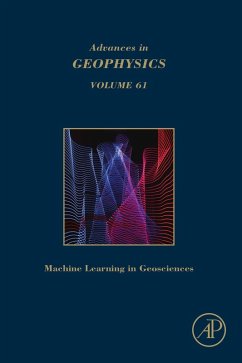Advances in Geophysics, Volume 61 - Machine Learning and Artificial Intelligence in Geosciences, the latest release in this highly-respected publication in the field of geophysics, contains new chapters on a variety of topics, including a historical review on the development of machine learning, machine learning to investigate fault rupture on various scales, a review on machine learning techniques to describe fractured media, signal augmentation to improve the generalization of deep neural networks, deep generator priors for Bayesian seismic inversion, as well as a review on homogenization for seismology, and more.
- Provides high-level reviews of the latest innovations in geophysics
- Written by recognized experts in the field
- Presents an essential publication for researchers in all fields of geophysics
Dieser Download kann aus rechtlichen Gründen nur mit Rechnungsadresse in A, B, BG, CY, CZ, D, DK, EW, E, FIN, F, GR, HR, H, IRL, I, LT, L, LR, M, NL, PL, P, R, S, SLO, SK ausgeliefert werden.


